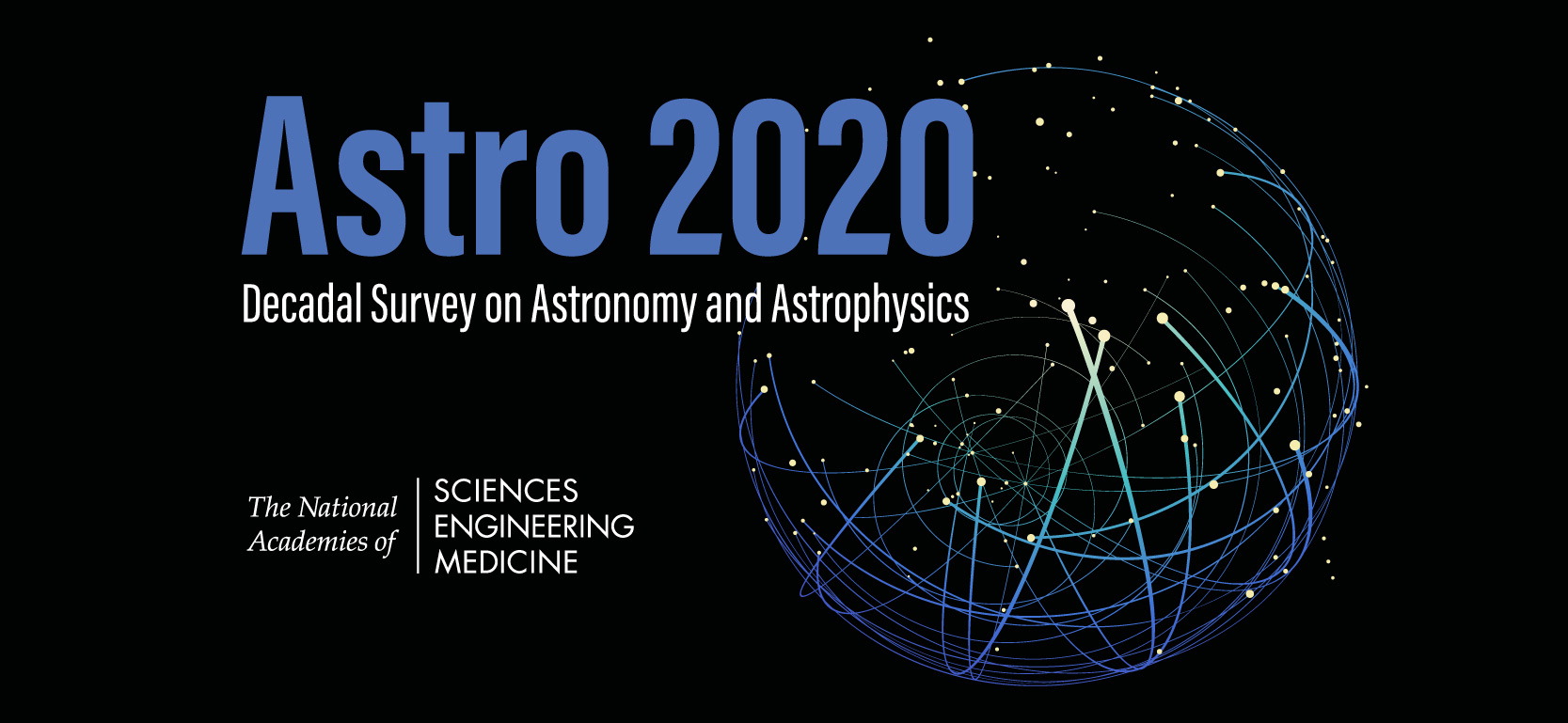National Academies Release Statement of Task for Astro2020
Ashlee Wilkins

The National Academies of Sciences, Engineering, and Medicine have released the Statement of Task for the Astronomy and Astrophysics Decadal Survey (Astro2020), along with the scope of the study. The statement of task and scope (along with other not-public components, including approach and considerations) are negotiated between, and then agreed to by the National Academy of Sciences (for its Space Studies Board and Board on Physics and Astronomy) and the funding agencies NASA, the National Science Foundation (NSF), and the Department of Energy.
While much of the spirit of the scope and statement of task for the last decadal survey in astronomy and astrophysics (Astro2010, see Appendix E) are echoed in the Astro2020 documents, there are some notable differences.
In response to community input, the agencies and the National Academies have agreed to fully empanel — i.e., sufficiently support and facilitate — a "state of the profession" study component that considers workforce and demographics (among other issues) in the field, such that it may make "specific, actionable and practical recommendations to the agencies and community." For Astro2010, though a State of the Profession study group received white papers and carried out the work of developing findings and recommendations, the final output was severely limited by not having been fully empaneled and thus lacking the resources to be reviewed and fully included in the final decadal survey report.
As denoted in the scope document, Astro2020 will consider astrophysics supported by the entire NSF, not just the programs of the Astronomy and Astrophysics Division, as has been the previous constraint. The study could therefore consider, and make recommendations to, astronomy and astrophysics supported in, e.g., the Physics Division and/or the cross-divisional 10 Big Ideas.
The Astro2020 Statement of Task explicitly calls for the survey to make use of "decision rules" — where appropriate — to help recommend approaches in a range of budget scenarios or other changes in the astrophysics landscape. The last decadal survey in planetary sciences (Visions and Voyages) was the first to make significant use of decision rules, and their use was determined to be a best practice for future surveys by the the The Space Science Decadal Surveys: Lessons Learned and Best Practices (also known as "The Survey of Surveys").
A final particularly notable difference in the Astro2020 governing documents from those of Astro2010 is that the survey committee is explicitly told that it need not fully reconsider previously prioritized, but not yet realized, space-based activities. The survey is instructed, however, to consider whether "NASA's plans for WFIRST, Athena, and LISA play an appropriate role in the research strategy for the next decade" and even make recommendations for those activities, including upscopes or descopes.
We will continue to provide updates on developments in the Astro2020 decadal survey as they arise. The Statement of Task and Scope can be found on the National Academies' Astro2020 website, along with an ever-evolving FAQ (send [email protected] an email if you do not see your question answered!) and details on the science white paper call. The leadership (chair or co-chairs) of the decadal survey should be announced by December, if not sooner, and the National Academies will next hold a town hall on the survey at AAS233 in Seattle in January 2019.

